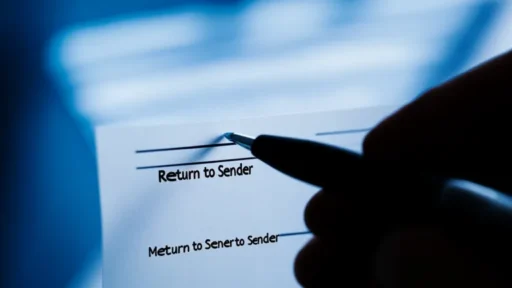Navigating legal matters can be daunting, especially when it involves making decisions on behalf of someone else. That’s where the concept of “power of attorney” comes into play. A power of attorney (POA) is a legal document that grants one person the authority to act on behalf of another, making critical decisions about finances, healthcare, and other personal affairs.
Understanding the meaning and implications of a power of attorney is crucial for anyone planning for the future or caring for a loved one. Whether it’s managing investments or making medical choices, a POA ensures that someone’s wishes are respected and followed, even when they can’t voice them themselves.
Understanding Power Of Attorney
Power of Attorney (POA) grants authority to an individual (agent) to make decisions on behalf of another (principal). This legal document ensures that the principal’s preferences and directives are honored when they can’t act independently.
Types of Power Of Attorney
Several POA types cater to specific needs and situations:
- General POA: Authorizes the agent to manage a broad range of activities, including financial and legal affairs. It’s effective until the principal becomes incapacitated.
- Durable POA: Remains effective even if the principal becomes incapacitated. This ensures continuous management of the principal’s affairs without interruption.
- Special or Limited POA: Grants the agent authority to perform specific tasks, such as selling property. It ends once the specific task is complete.
- Healthcare POA: Allows the agent to make medical decisions for the principal if they’re unable. This is critical for ensuring that healthcare preferences are honored.
- Springing POA: Becomes effective only under certain conditions, typically when the principal becomes incapacitated. This provides flexibility and acts as a safeguard.
Choosing An Agent
Selecting the right agent is crucial:
- Trustworthiness: The agent should be someone the principal completely trusts.
- Competency: They must have the necessary skills to handle the responsibilities. Financial or legal knowledge might be required depending on the POA type.
- Reliability: The agent needs to be reliable and available to act when needed.
Legal Requirements
POA documents must meet legal standards:
- Written Form: All POAs must be in writing. Verbal agreements aren’t valid.
- Principal’s Signature: The principal must sign the document for it to be legally binding.
- Witnesses and Notarization: Depending on jurisdiction, witnesses and notarization might be required to validate the POA.
Revoking Power Of Attorney
The principal can revoke a POA:
- Written Notice: The revocation must be in writing and delivered to the agent.
- Legal Procedures: Some jurisdictions require filing the revocation with a legal body.
Understanding POA is essential for effective future planning and ensuring that an individual’s wishes are carried out when they can’t communicate.
Types Of Power Of Attorney
Different types of Power of Attorney (POA) documents cater to specific needs and situations. Here are the primary types:
General Power Of Attorney
A General Power of Attorney grants broad powers to an agent. These powers encompass financial transactions, business operations, real estate dealings, and legal decisions. The agent can manage all affairs on behalf of the principal, provided they are within the specified duration and boundaries.
Limited Power Of Attorney
A Limited Power of Attorney, also known as a Special POA, authorizes the agent to perform specific tasks. These tasks can include selling a property, handling bank transactions, or managing investment accounts for a predefined period or purpose. This type of POA restricts the agent’s authority to the tasks explicitly mentioned.
Durable Power Of Attorney
A Durable Power of Attorney remains in effect even if the principal becomes incapacitated. This POA is crucial for long-term planning, as it ensures the agent can continue managing the principal’s affairs without interruption. The durability clause must be explicitly stated in the document to activate this feature.
Medical Power Of Attorney
A Medical Power of Attorney, or Healthcare POA, allows the agent to make healthcare decisions for the principal. This includes consenting to or refusing medical treatment, choosing healthcare providers, and making end-of-life decisions. The agent steps in when the principal cannot communicate their medical wishes.
How Power Of Attorney Works
Power of Attorney (POA) functions by granting an agent the authority to act on behalf of the principal in specified matters. Understanding its components and legal requirements is crucial for ensuring proper execution.
Key Components
Several essential elements define a Power of Attorney:
- Principal and Agent: The principal grants authority while the agent executes responsibilities. Both parties must be identified clearly.
- Scope of Authority: This specifies the extent of the agent’s powers. For example, a Limited POA might restrict actions to financial decisions only.
- Durability: Indicates whether the POA remains in effect if the principal becomes incapacitated. A Durable POA retains its validity under these circumstances.
- Effective Date: Defines when the POA becomes active. Some begin immediately, while others, like a Springing POA, activate under specific conditions.
- Termination Conditions: Outlines how and when the POA can be revoked. Conditions vary by jurisdiction and may require formal written notice.
Legal Requirements
Creating a valid Power of Attorney involves meeting distinct legal criteria:
- Written Document: The POA must be a written agreement to be legally enforceable. Verbal agreements don’t hold legal weight.
- Principal’s Signature: The document must bear the signature of the principal, ensuring their consent and understanding.
- Witnesses or Notarization: Some jurisdictions mandate that the document be witnessed or notarized to confirm its authenticity.
- Capacity of Principal: The principal must possess legal capacity, meaning they fully understand the implications of granting the POA.
Failing to meet these legal requirements may invalidate the Power of Attorney, making adherence essential.
Benefits Of Granting Power Of Attorney
Granting Power of Attorney (POA) provides significant advantages, particularly in managing finances and making medical decisions when the principal cannot communicate or act.
Financial Management
Delegating financial responsibilities through a POA empowers an agent to handle various aspects of the principal’s finances. These responsibilities include:
- Bill Payments: The agent can ensure timely payment of bills, preventing late fees or service interruptions.
- Bank Transactions: Access to bank accounts allows the agent to deposit, withdraw, and transfer funds, ensuring liquidity.
- Investment Management: The agent can oversee investment portfolios, making informed decisions to sustain or grow the principal’s assets.
- Real Estate Transactions: The agent has the authority to buy, sell, or manage properties, maintaining the principal’s real estate interests.
A POA for financial management aids in safeguarding the principal’s financial stability during times of incapacity.
Medical Decisions
Granting POA for healthcare allows an agent to make critical medical decisions on the principal’s behalf. These decisions include:
- Treatment Choices: The agent can consent to or refuse medical treatments based on the principal’s known wishes or best interests.
- Healthcare Providers: The agent can select appropriate healthcare providers and facilities, ensuring the principal receives quality care.
- Medical Records Access: The agent can access medical records, which is crucial for informed decision-making.
- End-of-Life Care: The agent can oversee end-of-life care decisions, honoring the principal’s preferences regarding life-sustaining treatments.
A healthcare POA ensures medical decisions align with the principal’s values and desires when direct communication is impossible.
Potential Risks And Considerations
While granting a Power of Attorney (POA) provides numerous benefits, there are potential risks and considerations to keep in mind.
Abuse Of Power
Abuse can occur if the agent misuses their authority to make decisions that are not in the principal’s best interest. This might include financial exploitation, unauthorized transactions, or neglect of the principal’s needs. Selecting a trustworthy individual as the agent mitigates this risk. It’s crucial to carefully outline the scope and limits of the agent’s authority within the POA document to prevent misuse.
Revocation Process
Revocation involves formally withdrawing the agent’s authority under an existing POA. This must be done in writing and should explicitly state the principal’s intention to revoke the POA. Depending on jurisdictional requirements, the revocation may need to be notarized or witnessed. Additionally, notifying any third parties who were aware of or relying on the POA ensures that they recognize its termination.
Discover the Power of BlueNotary:
Integrate your Business, Title Company, or Law Firm to Satisfy your Customers and Decrease Turnaround
Get a document Notarized/Sign-up
Join the Free Notary Training Facebook Group
Conclusion
Understanding the nuances of Power of Attorney is crucial for effective future planning and safeguarding one’s interests. Whether it’s managing finances or making healthcare decisions POA provides the necessary legal framework to ensure an individual’s wishes are honored. Choosing a trustworthy agent and adhering to legal requirements are essential steps in creating a valid and effective POA. By doing so individuals can have peace of mind knowing their affairs will be handled according to their preferences even in their absence or incapacity.
Frequently Asked Questions
What is a Power of Attorney (POA)?
A Power of Attorney (POA) is a legal document that allows one person (the principal) to authorize another person (the agent) to make decisions on their behalf regarding finances, healthcare, and personal matters.
Why is understanding POA important?
Understanding POA is crucial for future planning and caregiving. It ensures that an individual’s wishes are honored even when they are unable to communicate them due to incapacity or other reasons.
What are the different types of POA?
The different types of POA include General POA, Durable POA, Special or Limited POA, Healthcare POA, and Springing POA. Each serves specific needs and situations.
What does a General Power of Attorney grant?
A General Power of Attorney grants broad powers to an agent to manage various affairs on behalf of the principal, including financial and personal matters.
What is a Durable Power of Attorney?
A Durable Power of Attorney remains effective even if the principal becomes incapacitated, ensuring continuous management of their affairs.
How is a Limited Power of Attorney different?
A Limited Power of Attorney restricts the agent’s authority to specific tasks or for a defined period, unlike a General POA, which grants broad powers.
What is a Medical Power of Attorney?
A Medical Power of Attorney allows an agent to make healthcare decisions on behalf of the principal when they cannot communicate their wishes.
How do you create a valid POA document?
To create a valid POA document, it must be in writing, signed by the principal, and may require witnesses or notarization depending on jurisdiction.
How can a POA be revoked?
A POA can be revoked by the principal through a written revocation notice. Legal procedures may be required in certain jurisdictions to ensure the revocation is recognized.
What are the key components of a POA?
Key components of a POA include the roles of the principal and agent, the scope of authority, durability, effective date, and termination conditions.
What are the benefits of granting a Power of Attorney?
The benefits include managing finances and making medical decisions when the principal cannot act, ensuring their wishes and best interests are followed.
What risks are associated with granting a POA?
Risks include the potential abuse of power by the agent. It is critical to choose a trustworthy, competent, and reliable agent and clearly outline their scope of authority.







